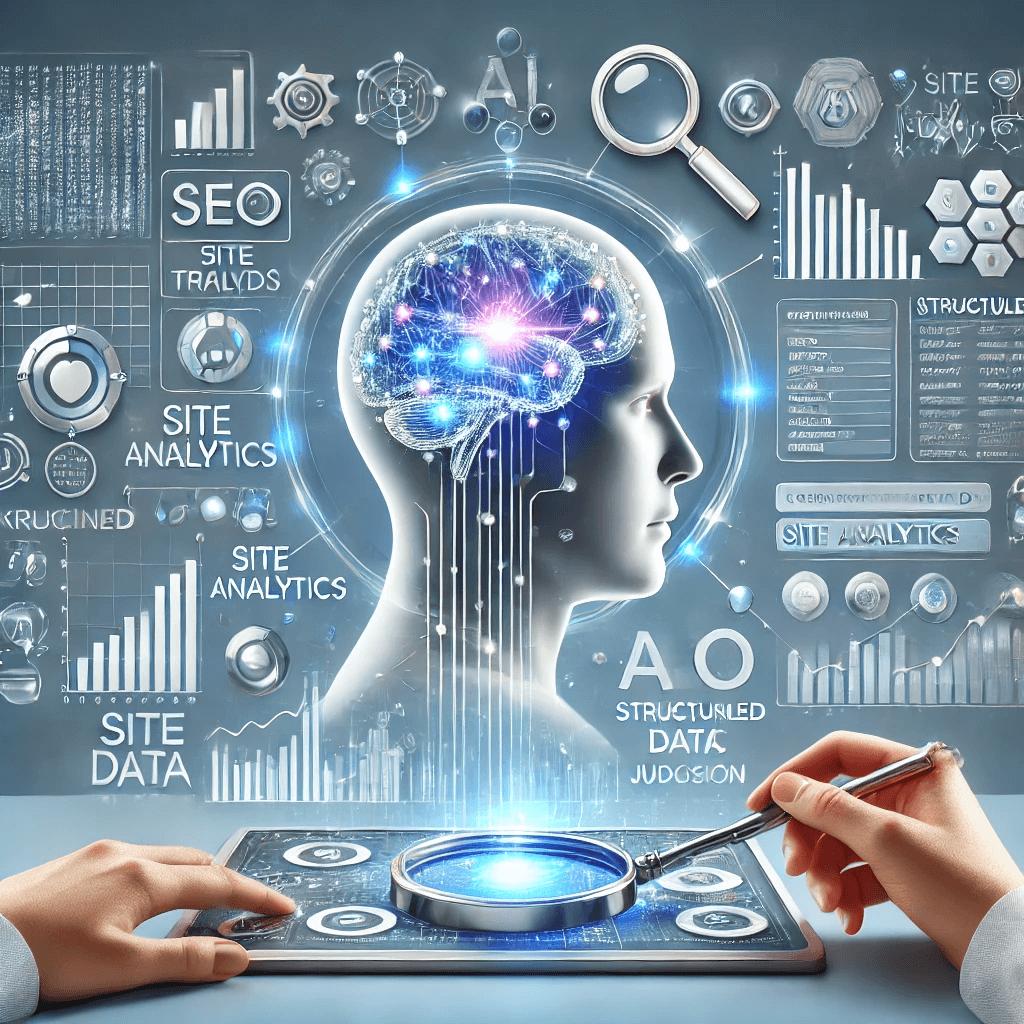SEO In The Age Of AI - Final Part: Incorporating AI into Your SEO Workflow: Practical Tips for Success
This is Part 6 and the final part of the SEO In The Age Of AI series. You can read Part 5: Authority, Citations, and Branding: Navigating SEO in the Age of AI here

The 7 Insights
Artificial Intelligence (AI) is revolutionizing the world of SEO. As businesses and marketers strive to stay ahead, understanding how to effectively integrate AI into their SEO strategies is crucial. In this final post of our SEO In The Age Of AI Series, lets explore the practical ways to leverage AI, enhancing your workflow while maintaining a balance with human insight.
I have digested our last part into 7 insights which I list down below.
Understanding AI’s Strengths
AI excels at detecting connections and trends, supplementing human judgment but not replacing it. Tools like ChatGPT, Google’s Gemini, and Claude support impactful content creation when combined with human insights.
- AI excels at making connections and identifying trends, but it cannot fully replace human judgment, particularly in creating authentic, engaging content. [^1]
- AI tools like ChatGPT, Google’s Gemini, and Claude can assist with content generation, but they should be used in conjunction with human insights to create truly impactful content.
Leveraging AI for Content Creation
AI accelerates content generation and handles tasks such as finding trending topics or drafting outlines. Comparing models like ChatGPT, Gemini, and Claude helps determine the best fit for specific SEO goals.
- AI tools can generate content faster, but it is essential to test different models (e.g., ChatGPT vs. Gemini vs. Claude) to determine which provides the best output for your specific SEO goals.
- Generative AI can also assist with repetitive tasks like identifying trending topics, generating keywords, and drafting basic content.
Using AI for Technical SEO
AI-driven solutions assist with site speed, mobile compatibility, and structured data, aligning websites with search engine standards. They help create user-friendly architectures that boost overall SEO performance.
- AI can aid in optimizing your website for technical SEO elements such as site speed, mobile responsiveness, and structured data. [^2]
- Tools driven by AI can help improve a website’s structure, ensuring that it is both user-friendly and aligned with search engine requirements.
Structured Data and Knowledge Graphs
Schema markup enhances AI’s ability to interpret site information, improving rankings and increasing visibility in AI-generated results. Knowledge graphs connect website data to user queries and are crucial in AI-driven search.
- Incorporating structured data (schema markup) is vital to improving AI’s ability to understand and rank your content. It helps search engines interpret the information on your site and increases the chances of being featured in AI-generated search results.
- Knowledge graphs are becoming a key element of AI-driven search engines. Organizing your website’s information in a way that fits into AI ontologies will make it easier for AI to connect your content with user queries.
Balancing Automation and Human Judgment
AI manages repetitive SEO tasks, freeing human teams to focus on creativity, quality, and relevance. Human oversight ensures that content remains engaging and value-driven beyond AI’s capabilities.
- While AI can handle a lot of repetitive SEO tasks, human judgment is essential for determining content quality, creativity, and relevance.
- AI should enhance workflows by streamlining processes like keyword research, technical optimization, and basic content creation, while humans focus on adding value that AI cannot replicate.
- An example is Kafkai, where the tool helps you by suggesting strategies and related keywords based on data, but ultimately allows you to decide which strategy to follow through. Only you know your business well, and only you can decide how to bring it forward, not the AI.
Experimenting with AI in SEO Workflows
Testing various AI-based tools pinpoints the most effective methods for boosting productivity and refining content. Ongoing experimentation, guided by real-world data, reveals new optimization opportunities.
- Regular testing is important to understand which AI tools work best for specific tasks within your SEO strategy.
- Experimenting with AI-based tools can reveal opportunities to improve productivity and content output, but it is critical to refine these tools based on real-world results and feedback.
- Many AI tools are available which can be used to experiment different workflows [^3]
Monitoring and Adjusting AI-Driven Strategies
SEO strategies must evolve alongside AI’s development. By tracking shifts in user behavior and search algorithms, you can adapt quickly and maintain a competitive advantage.
- As AI technology evolves, so should your SEO strategy. Continuously monitor how AI impacts search results and adjust your approach as necessary.
- Be prepared to pivot based on changes in user behavior, as AI’s role in search continues to grow.
Conclusion
Incorporating AI into SEO workflows can bring significant productivity benefits, but success depends on balancing AI’s strengths with human judgment. Structured data, technical optimization, and continuous experimentation are key to making the most of AI in SEO.
Thank you again to the Search Engine Journal (SEJ) for releasing to the public their SEO In The Age Of AI white paper which was the basis of this series. It was a long but informative read.
References
-
Can AI perform technical SEO analysis effectively? from Search Engine Land ↩
-
20 Best AI SEO Tools & How to Use AI in 2024 compiled by Hubspot. ↩